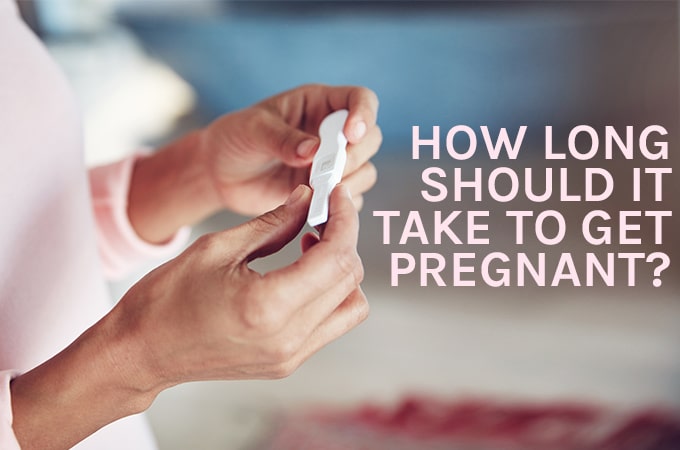
For some couples, a month is all they need to see those double pink lines. Yet for others, it takes longer and sometimes involves undergoing fertility treatment. On average, one in eight couples of reproductive age will need help in order to conceive.
The factors influencing conception are multifaceted, but the key indicator of future success is the female partner’s age. TODAY.com asked SGF Richmond physician, Dr. Michael Edelstein how age affects a woman’s chances of getting pregnant, when it’s time to seek help, and ways to improve fertility.
Your Chances of Getting Pregnant By Age
Though the number is surprising, a woman only has around a 15 to 20 percent chance of conception each month and, depending on how old she is, her window to get pregnant varies. In the time period of one year:
- A 20 to 24-year-old has an 86 percent chance of conceiving
- A 25 to 29-year-old has a 78 percent chance of conceiving
- A 30 to 34-year-old has a 63 percent chance of conceiving
- A 35 to 39-year-old has a 52 percent chance of conceiving
Couples often wonder how long they should be trying to get pregnant on their own before seeking guidance from a fertility specialist. Age is the critical factor here. If there are no obvious fertility concerns:
- A woman under the age of 35 should seek care after trying unsuccessfully for approximately 1 year.
- A woman between the ages of 35 and 39 should seek care after trying unsuccessfully for 6 months.
- A woman 40 years or older should seek care after trying unsuccessfully for 3 months.
Women of any age with certain conditions should proactively talk with a physician about how this could potentially affect their ability to get pregnant. “Women who have endometriosis, irregular cycles, or a history of pelvic inflammatory disease, as well as women who have had two or more miscarriages, should consider seeing a specialist,” according to Dr. Edelstein. “The same goes for women who have major health issues, including women who have cancer and are getting ready to undergo chemotherapy or radiation.”
“Most fertility doctors can see those patients almost immediately,” Dr. Edelstein said. “There’s an option to quickly freeze their eggs, and we have special programs and abilities to get free or significantly reduced medicine, and that’s really important for women to know.”
Lifestyle Changes to Improve Fertility
When many people think of fertility treatment, they imagine sophisticated testing, powerful medications, and high-tech procedures without realizing that even simple lifestyle changes can improve fertility health and have a tremendously positive impact on the ability to conceive.
1. Maintain a healthy weight.
It’s important to prepare your body for conception. One way to do this is to achieve an optimal weight through exercise and a healthy diet. Obesity and borderline obesity convey many risks to both mother and baby that you can reduce or eliminate with weight loss. Studies show that losing as little as 5 percent of your body weight may increase your chances of pregnancy. Underweight individuals also are predisposed to risk factors that you can remedy with proper nutrition and achieving an optimal weight.
[Watch: SGF’s On-Demand Webinar, Weight and Fertility]
2. Quit smoking.
It’s no surprise that smoking presents risks to your overall health. However, many people don’t realize the effect smoking has on fertility. Studies have shown that women who smoke have a 54 percent chance of taking a year or longer to conceive compared with nonsmokers. The delay in conception is directly impacted with the quantity of cigarettes smoked. The more cigarettes smoked, the more chemicals that enter the body, which increases the rate of follicular depletion and reduces estrogen levels in the body.
Smoking affects men as well and can decrease their sperm count by 22 percent. Damage from smoking is not permanent and it can be improved. Sperm regenerates every 74 days, enabling sperm produced after stopping smoking to be of better quality.
3. Reduce alcohol intake.
Women who consume a moderate amount of alcohol (up to five drinks per week) have shown a decrease in fertility. Women who consume 10 alcoholic drinks per week show an even greater decrease in their chances of conceiving. Since there is no confirmed data of a safe threshold for consumption, we recommend refraining from all alcohol when trying to conceive and during pregnancy.
4. Manage stress and anxiety appropriately.
For many women, their stress levels may already be high when they are trying to conceive or begin treatment. When you begin fertility treatment, we strongly recommend patients to join a support group. Some even find services such as acupuncture or massage offered at our Wellness Center to be helpful. While these alternative therapies have not been proven to increase conception rates, these activities have helped many patients better manage the emotional stress of infertility and support them before and during treatment. Even modest lifestyle adjustments in can make a difference in improving your fertility and help you get pregnant faster.
5. Get enough sleep.
We all know how important it is to get a good night’s sleep, but did you know that you’ll get a much better quality of sleep if you sleep in total darkness? According to studies published in Fertility and Sterility, melatonin production can be lowered by artificial light including the light emitted from your smartphone or tablet. Melatonin is the sleep hormone that helps boost fertility, so remember to get your z’s and turn out the lights!
6. Be sure your medications are appropriate to take during pregnancy.
Review your current medications, including any herbs or supplements, with your physician to ensure proper dosages and to determine if your medications are safe to take during pregnancy. There may be alternatives to current medications that are safe during pregnancy and others that should change prior to conception.
7. Know your medical history.
It is important to review with your physician your medical history, including past immunizations. We encourage patients to get up to date with their immunizations for such conditions as influenza, chicken pox, measles, mumps, and rubella, to name a few.
8. Seek physician care for undiagnosed and untreated medical conditions.
There are a number of medical conditions that may negatively affect pregnancy, including prediabetes, asthma, high blood pressure, and a low-functioning thyroid gland. It is important to have a physical examination by either a gynecologist or your primary care physician before trying to conceive or beginning fertility treatments. A physician can easily test for and treat conditions before you become pregnant. The result of treatment can greatly improve your fertility, diminish the chance of miscarriage, and promote a healthy pregnancy.
Editor’s Note: This post was originally published in June 2019 and has been updated for accuracy and comprehensiveness as of October 2020.
To learn more or to schedule an appointment with an SGF physician, please contact our New Patient Center at 877-971-7755 or fill out this brief form.






